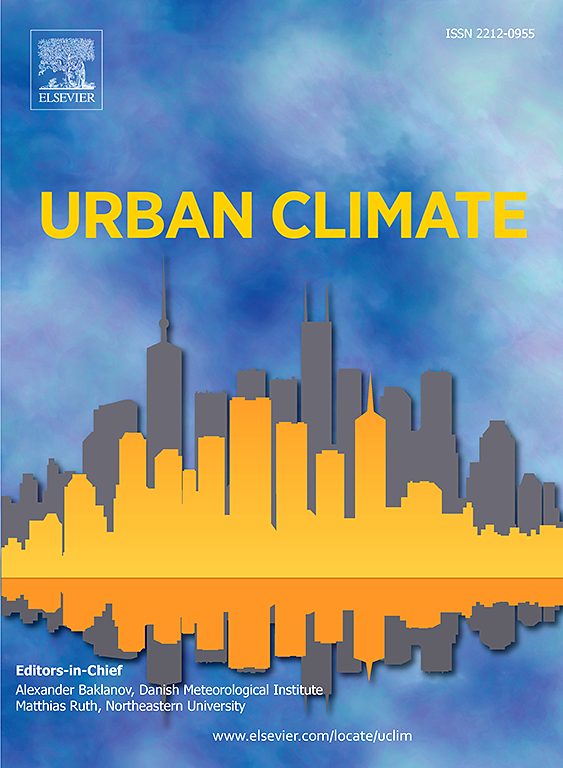Evolving dynamics of lagoons in a megacity: Insights on climate and urbanization over four decades
IF 6
2区 工程技术
Q1 ENVIRONMENTAL SCIENCES
引用次数: 0
Abstract
Lagoons are critical coastal ecosystems that serve as buffers against climate change impacts while supporting biodiversity and socio-economic activities. However, these systems are increasingly threatened by the combined pressures of urban expansion and climate variability, particularly in rapidly growing megacities. This study investigates the dynamic transformation of the Lagos lagoon systems in West Africa, comprising Epe, Ologe, Lagos, and Lekki Lagoons over four decades (1984–2024). Lagos, a megacity, is an ideal case due to its rapid urban growth, economic significance, and unique coastal dynamics. Using an integrated approach that combines satellite-derived geospatial data with hydrological and climatic analyses, we quantify long-term changes in lagoon area, volume, temperature, and rainfall trends. Contrary to global patterns where urbanization typically results in lagoon shrinkage, our findings reveal a significant expansion in lagoon area and volume, primarily driven by anthropogenic modifications such as land reclamation and sedimentation, as well as broader climatic factors, including sea-level rise and tidal surges. These results highlight the complex interplay between natural and anthropogenic drivers of coastal change, emphasizing the necessity for adaptive management strategies. Importantly, our study contributes to a broader understanding of lagoon system responses to external stressors and provides a foundation for developing evidence-based policies and nature-based solutions to mitigate the adverse impacts of urbanization on coastal ecosystems.
大城市中泻湖的演变动态:四十年来气候和城市化的见解
泻湖是重要的沿海生态系统,在支持生物多样性和社会经济活动的同时,还起到缓冲气候变化影响的作用。然而,这些系统正日益受到城市扩张和气候变化共同压力的威胁,特别是在快速发展的特大城市。本研究调查了西非拉各斯泻湖系统的动态变化,包括Epe, Ologe,拉各斯和Lekki泻湖,超过40年(1984-2024)。拉各斯是一个特大城市,由于其快速的城市发展、经济意义和独特的沿海动态,是一个理想的例子。通过将卫星地理空间数据与水文和气候分析相结合的综合方法,我们量化了泻湖面积、体积、温度和降雨趋势的长期变化。与城市化通常导致泻湖收缩的全球模式相反,我们的研究结果揭示了泻湖面积和体积的显着扩张,主要是由人为变化(如土地开垦和沉积)以及更广泛的气候因素(包括海平面上升和潮涌)驱动的。这些结果突出了海岸变化的自然和人为驱动因素之间复杂的相互作用,强调了适应性管理策略的必要性。重要的是,我们的研究有助于更广泛地了解泻湖系统对外部压力源的反应,并为制定基于证据的政策和基于自然的解决方案提供基础,以减轻城市化对沿海生态系统的不利影响。
本文章由计算机程序翻译,如有差异,请以英文原文为准。
求助全文
约1分钟内获得全文
求助全文
来源期刊

Urban Climate
Social Sciences-Urban Studies
CiteScore
9.70
自引率
9.40%
发文量
286
期刊介绍:
Urban Climate serves the scientific and decision making communities with the publication of research on theory, science and applications relevant to understanding urban climatic conditions and change in relation to their geography and to demographic, socioeconomic, institutional, technological and environmental dynamics and global change. Targeted towards both disciplinary and interdisciplinary audiences, this journal publishes original research papers, comprehensive review articles, book reviews, and short communications on topics including, but not limited to, the following:
Urban meteorology and climate[...]
Urban environmental pollution[...]
Adaptation to global change[...]
Urban economic and social issues[...]
Research Approaches[...]
 求助内容:
求助内容: 应助结果提醒方式:
应助结果提醒方式:


